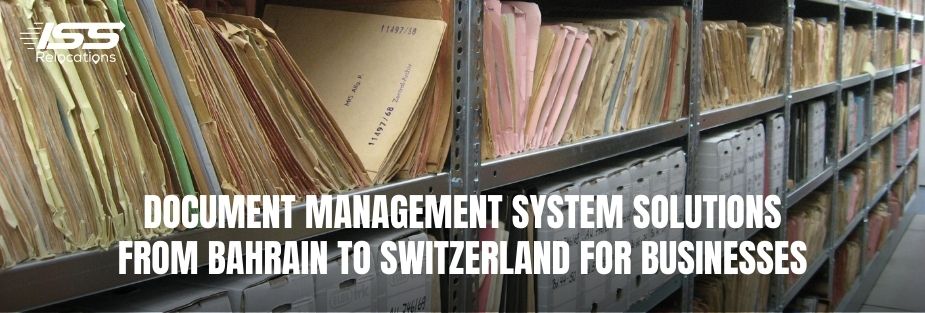
A Complete Guide for Moving Insurance in 2024
Moving to a new home is an incredible accomplishment, but it additionally comes with an additional set of challenges that cause concerns. There are numerous hazards associated with the moving process, ranging from packing fragile goods to hauling big furniture, that could result in damage or loss of your belongings. That’s where moving insurance comes in, giving you peace of mind and financial safeguards against unanticipated circumstances during your relocation.
This comprehensive article will discuss all you need to know about international relocation insurance in 2024. We’ll assist you across every detail from understanding all the different kinds of coverage to estimating expenses and deciding on the most appropriate policy for your requirements. Let’s get started so that your next relocation goes as smoothly and stress-free as possible.
Start Your Next Chapter Without the Stress – Move EasyRelocate To Abu Dhabi?
10 Types of Moving Insurance Coverage Options to Consider When Planning Your Move
Basic Liability Coverage
This is the simplest and most basic category of moving insurance coverage, which is usually included in the moving company’s base rate. It guarantees coverage based on the weight of your belongings, often at $0.60 per pound.
Released Value Protection
This sort of policy, often known as basic coverage, offers minimum protection for the products you own. The moving firm will be accountable for up to 60 cents per pound per item in the event of damage or loss.
Full-Value Protection
This expansive insurance plan guarantees the best security for all of your possessions. This contract enables the moving firm to repair, take the place of, or reimburse you for any damage or loss to your belongings.
Declared Value Protection
Through this option, you declare the value of everything you own prior to the move. The moving firm will then charge you an additional fee depending on the value shown and offer appropriate coverage.
Third-Party Insurance
In addition to the coverage that the moving company offers, you may purchase third-party insurance from an independent healthcare provider. This option provides additional assurance and tranquility of mind during your relocation.
Specialty Items Coverage
If you own high-value or trained professional things like artwork, antiques, or musical instruments, consider getting supplementary coverage for these items.
Storage Insurance
If some of your belongings will be put away in a storage facility during your move, you may need to obtain separate insurance coverage for the things in question.
International Moving Insurance
If you have plans to move overseas, you might require specific insurance coverage for safeguarding your belongings during transit and customs.
Rental Truck Insurance
If you rent a vehicle for transportation for a do-it-yourself move, you might be required to obtain rental truck insurance separately.
Temporary Housing Insurance
If you decide to stay in a temporary residence during your relocation, you may need insurance to protect your belongings while they are in transportation and temporary housing.
Call Our Experts Now
Some Key Factors That Can Affect the Cost of Moving Insurance
Coverage Type
The particular kind of relocation coverage for insurance you choose will have a major impact on the cost. Comprehensive liability coverage frequently represents the most affordable choice, whereas full-value protection supplies the most comprehensive coverage but might demand a higher premium.
Value of Belongings
The collective worth of everything that you’re moving will have an effect on the cost of insurance coverage. The more substantial the worth of your personal belongings, the higher the insurance price will be.
Distance of Move
The distance of your move impacts the cost of coverage for your insurance. Longer moves require higher premiums due to the increased risk factors associated with longer transit intervals and the potential for damage or loss.
Type of Transport
The method of transportation you choose for your relocation could impact the cost of insurance coverage. For example, if you make the choice to do a do-it-yourself move with a rented truck, you may need to acquire additional coverage for insurance for the vehicle, which might boost the overall cost.
Level of Risk
The costs of insurance have been determined based on the risk involved with the change. The cost of coverage can be determined by a number of variables, including the route selected, the kind of weather, and the possibility of accidents or theft.
Seasonality
The time of year you are moving could have a major impact on the cost of coverage for insurance. Peak moving seasons, such as the height of the summer season, might result in higher prices resulting from increased demand for moving services and insurance coverage.
Insurance Provider
The insurance provider you decide on might impact the cost of coverage, considering different providers might supply different rates and coverage options. To get the most affordable price for your needs, browse around and compare quotes from many different vendors.
Additional Coverage Options
Additional coverage options, such as trained professionals’ item coverage or storage insurance, are going to raise the overall cost of insurance coverage. When determining the overall cost, make sure that you incorporate any additional coverage options.
Deductibles
The deductible amount you decide on will have an impact on the cost of insurance coverage. A more powerful deductible roughly translates into lower rates, but you must pay more out of pocket in the event of a claim.
Discounts
Certain insurance providers offer discounts for everything, like bundling many different kinds of coverage, having an absence of claims history, or being a member of a particular association. Please inquire about any available discounts that might decrease the cost of coverage.
Conclusion
In a nutshell, many different variables affect the cost of moving insurance coverage. Understanding these aspects will be essential for making informed decisions when choosing the most suitable coverage for your relocation. The total expense of insurance coverage can be affected by a variety of factors, including the kind of coverage, value of items, distance of the move, mode of transportation, amount of risk, seasonality, insurance provider, additional coverage options, deductibles, and discounts.
With the help of carefully evaluating the above requirements and assessing your personal needs, you are able to choose an appropriate insurance plan that delivers enough protection for your things at a cost that is within your budget. Remember to shop about, compare quotes among different providers, and question any available discounts to ensure you receive the greatest deal on your moving insurance policy.
Plan Stress-free Move with Top Moving Company in UAE - ISS Relocations

Frequently Asked Questions
What is the meaning of relocation insurance?
Relocation insurance provides coverage for potential damages or losses incurred during a move. It protects your belongings while in transit, whether locally or internationally. ISS Relocations offers comprehensive moving insurance options to ensure peace of mind, covering risks like accidents, theft, and natural disasters.
Can I move my insurance?
Yes, you can transfer or adjust your moving insurance to cover your new destination. Many policies allow you to update coverage based on the location, transport method, and value of belongings. ISS Relocations helps clients select the best moving insurance coverage tailored to their needs, ensuring maximum protection during relocation.
What is relocation coverage?
Saudi Arabia, Relocation coverage is insurance that protects your belongings during a move. It provides compensation for any damage or loss that may occur during transport. ISS Relocations offers moving insurance services to ensure your move is protected and stress-free.
Does my contents insurance cover moving?
Your contents insurance may cover moving, but it’s important to check the specific terms of your policy. For added protection during your move, ISS Relocations provides tailored moving insurance options to cover your belongings from start to finish.
Can you transfer an insurance policy?
Yes, you can transfer your insurance policy when moving to a new location, though it may require adjustments based on your new residence. ISS Relocations can assist you in managing your moving insurance and ensure a smooth transfer of coverage to your new home.
Can I switch to a different insurance company?
Yes, you can switch insurance companies. If you’re moving, ISS Relocations can help guide you through the process of selecting a new policy that best suits your needs during your relocation.
What is migration insurance?
Migration insurance is designed to cover the risks associated with relocating to a new country. It typically includes health coverage, travel insurance, and moving-related protection. ISS Relocations can assist you in obtaining the right migration insurance to protect your move.
Moving Company - Recent Blog
Stay informed and prepared for your next move with our latest blogs on moving services in the UAE. From expert packing tips to international relocation guides, ISS Relocations brings you up-to-date insights to make your moving experience smoother, safer, and stress-free.










